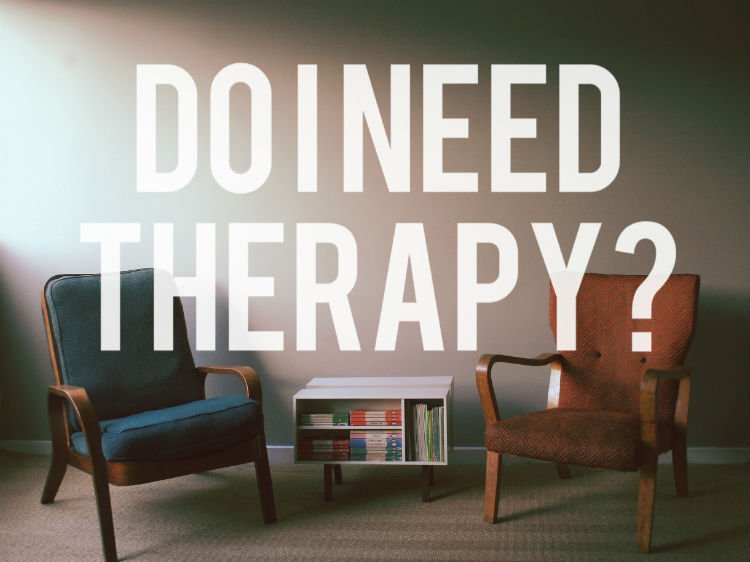Mental health counseling can benefit people who struggle with emotional problems, liver problems, and mental health concerns, regardless of the name it is recognized by, psychotherapy, talk or talk therapy, counseling, or simply therapy.
Symptoms of many mental health conditions can be improved by therapy. In therapy, individuals also learn to cope with symptoms that may not immediately respond to treatment. The advantages of therapy last longer than medication alone, research shows. Some symptoms of mental health conditions can be reduced by medication, but therapy teaches people skills to deal with symptoms on their own.
Issues of mental health are common. Recent National Alliance on Mental Health statistics shows that 1 in 5 adults in the United States lives with a mental health condition, while 1 in 25 adults lives with a serious mental health condition.
But only about 40% of people with mental health issues get help. Untreated mental health issues often get worse and may have other negative effects. They could also lead to:
Inability to work or go to school
Difficulty in relationships or taking care of children
Increased risk of health issues
Hospitalization
Suicide
DO YOU “NEED” THERAPY?
It may be stigmatizing to tell someone they should go to therapy or that they need therapy. Watching a loved one deal with mental health challenges may be difficult, but it is important for individuals to choose to seek help on their own, as long as they do not put themselves or anyone else at risk.
Encouraging someone you care about to look into possible therapy options is usually a better way to show support, even offering to review potential therapists with them. Individuals who feel compelled into treatment may feel resistant and find it more difficult to put in the work needed to make a change.
While therapy can help people work through problems that lead to thoughts of suicide, for people in crisis, it is usually not the best option. You can get help right away if you are in a crisis by reaching out to a suicide helpline via phone, text message, or online chat. You will be advised to call the nearest emergency room or to visit it. Once you’re no longer in a crisis, a therapist will help support you to move forward.
Therapy may be prescribed when some form of mental health or emotional problem impacts everyday life and work. Therapy can help you to learn about what you feel, why you might feel it, and how to deal with it.
Therapy also provides a supportive space for talking about life issues such as breakups, depression, problems with parenting, or family difficulties. Couple therapy, for example, will assist you and your partner to work through relationship issues and discover new ways to relate to each other. Note that for abusive marriages, crisis resources, not couple therapy, are usually recommended.
SHOULD I GO TO THERAPY?
Before you decide you’re ready for treatment, it can require some thought. You may want to wait to see if time, lifestyle changes, or friends and family support strengthens anything you struggle with.
The Indian Psychological Association suggests considering therapy when something causes distress and interferes with some part of life, particularly when:
Thinking about or coping with the issue takes up at least an hour each day
The issue causes embarrassment or makes you want to avoid others
The issue has caused your quality of life to decrease
The issue has negatively affected school, work, or relationships
You’ve made changes in your life or develop habits to cope with the issue
If you experience any of the following emotions or feelings to the extent that they interfere with life, therapy may help you reduce their effects. It’s especially important to consider getting help if you feel controlled by symptoms or if they could cause harm to yourself or others.
Overwhelm. You might feel like you have too many things to do or too many issues to cope with. You might feel like you can’t rest or even breathe. Stress and overwhelm can lead to serious physical health concerns.
Fatigue. This physical symptom often results from or accompanies mental health issues. It can indicate depression. Fatigue can cause you to sleep more than usual or have trouble getting out of bed in the morning.
Disproportionate rage, anger, or resentment. Everyone feels angry at times. Even passing rage isn’t necessarily harmful. Seeking support to deal with these feelings may be a good idea when they don’t pass, are extreme compared to the situation, or if they lead you to take violent or potentially harmful actions.
Agoraphobia. People with agoraphobia fear being in places where they might experience panic attacks or become trapped. Some people may become unable to leave their houses.
Anxious or intrusive thoughts. It’s normal to worry about things from time to time, but when worry takes up a significant part of your day or causes physical symptoms, therapy can help you deal with it.
Apathy. Losing interest in usual activities, the world around you, or life, in general, can indicate mental health issues like depression or anxiety.
Hopelessness. Losing hope or motivation, or feeling as if you have no future, can indicate depression or another mental health condition. Feeling hopeless from time to time, especially after a period of difficulty, isn’t uncommon. But when it persists, it may lead to thoughts of suicide.
Social withdrawal. Many people feel better when they’re able to spend at least some time alone. Introverted people may need even more time alone than others. But if you feel distressed around others or fear being with other people, therapy can help you understand and deal with these feelings.
You might be interested to read this article: How to choose a clinical Psychologist
Address: 4/18, Ground floor, Artist Village, Sector 8, CBD Belapur, Navi Mumbai, Maharashtra, India
Phone Number: +919833784373
Google My Business Link: https://g.page/MindsBhumikaPsychologist?gm
Business Email: contact@mindsbhumika.com
Website: https://mindsbhumika.com/
#personaldevelopment #motivation #personalgrowth #mindset #inspiration #success #selflove #selfcare #lifecoach #entrepreneur #growth #leadership #coaching #love #growthmindset #goals #mindfulness #selfdevelopment #mentalhealth #business #positivevibes #happiness #loveyourself #motivationalquotes #selfhelp #selfimprovement #lifecoaching #positivity #life #bhfyp




